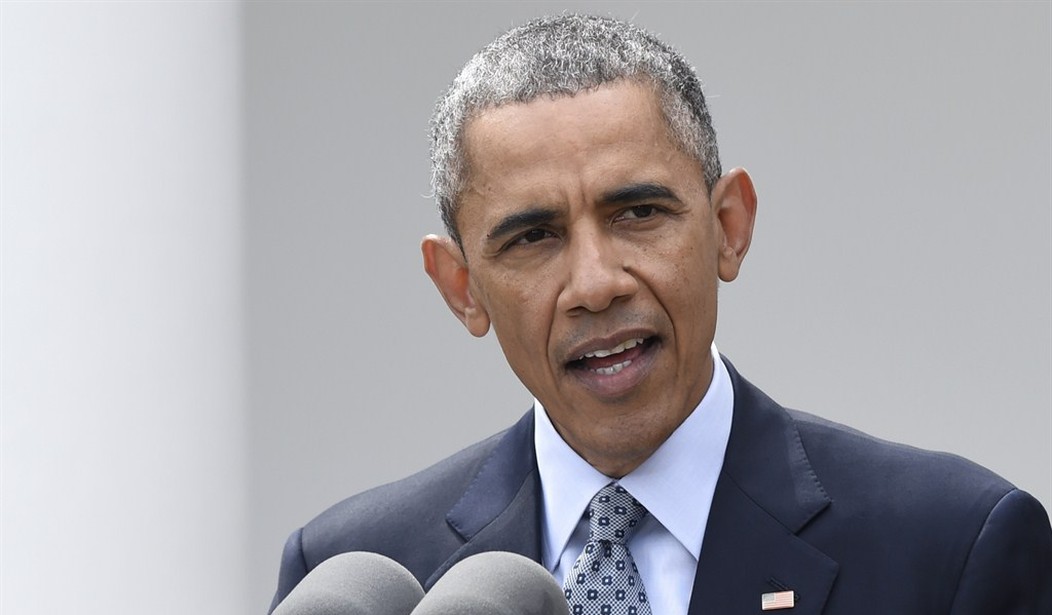At the White House Easter Prayer Breakfast this week, President Obama addressed a room full of Christian leaders. What was clearly scripted to be a general Easter address came dangerously close to political posturing. During his remarks, the President shared that, “on Easter, I do reflect on the fact that as a Christian, I am supposed to love. And I have to say that sometimes when I listen to less than loving expressions by Christians, I get concerned. But that's a topic for another day.” What followed was spirited laughter, as Obama’s quip was largely understood as a reference to the most recent battle in a larger culture war—Indiana’s Religious Freedom Restoration Act (RFRA), which critics believe gives business owners license to discriminate against gay couples. The President tried to continue his prepared remarks, but sensing the warm reception of his political aside, digressed again, stating, “where there is injustice —I was about to veer off. [Laughter] I'm pulling it back—where there is injustice we defend the oppressed.”
Delivering such an important line between laughs felt insincere. Only days before, on the eve of Good Friday, four armed militants targeted and killed 147 Christian students at a university in Kenya. According to survivors, the gunmen went from dorm room to dorm room, separating Muslim students from Christian students and then executing the latter. The Islamic terrorist group known as al-Shabaab claimed responsibility for the attack, boasting afterward that more attacks against Kenya, a country with a large Christian majority, are to come. The group tweeted that, “No amount of precaution or safety measures will be able to guarantee your safety, thwart another attack or prevent another bloodbath.”
Al-Shabaab is not alone in their terror campaign against Christians. Only days later, ISIS militants blew up one of the oldest Christian churches in Syria. The attack was symbolic, as the church was leveled on Easter Sunday. This Easter attack follows a bombing spree that took place last month, when ISIS specifically targeted, raided, and destroyed 10 Christian homes in the northern Nineveh province of Iraq.
These violent acts of terrorism against Christians will only continue as the Middle East plunges further and further into chaos. It is time for the United States to respond more aggressively.
Obama, himself a Christian, should have used the Easter Prayer Breakfast as an opportunity to express solidarity and renew America’s commitment to securing religious liberty not only at home, but abroad as well. A common misconception regarding religious liberty is that it is strictly a domestic issue, reserved for battlegrounds like Indiana. This is simply untrue, as evidenced by the International Religious Freedom Act of 1998. Signed into law by President Bill Clinton, the IRF seeks:
Recommended
“to strengthen United States advocacy on behalf of, individuals persecuted in foreign countries on account of religion; to authorize United States actions in response to violations of religious freedom in foreign countries; to establish an Ambassador at Large for International Religious Freedom within the Department of State, a Commission on International Religious Freedom, and a Special Adviser on International Religious Freedom within the National Security Council; and for other purposes.”
In addition to this original piece of legislation, there is also a bill in committee that seeks to make an amendment. H.R. 1323, the Shahbaz Bhatti International Religious Freedom Act of 2015, seeks to amend the IRF by including “violations of religious freedom by non-state actors in the annual Department of State report to Congress on international religious freedom.” If passed, this amendment will allow the United States to condemn not only governments, but militants and terrorists as well that are violating religious freedoms. It would be a first step in the right direction.
The atrocity in Kenya and the ISIS bombings are only highlights of the larger issue of Christian persecution overseas. According to Open Doors USA, a non-profit organization focused on serving persecuted Christians in more than 60 countries, an average of 772 forms of violence are committed against Christians each month while 332 are killed for their faith. Such violence includes “beatings, abductions, rapes, arrests, and forced marriages.” These staggering figures are not just a Christian problem, but a human rights problem as well.
In an attempt to highlight what he perceives as the kind of injustice that Christians at home are perpetuating, the President quoted remarks that Pope Francis made during a Mass in February for the new Cardinals of the Catholic Church. The Pope preached that people should open their eyes, “to see the Lord in every excluded person who is thirsty, hungry, naked; to see the Lord present even in those who have lost their faith… imprisoned, sick, unemployed, persecuted; to see the Lord in the leper—whether in body or soul—who encounters discrimination.” The President then concluded the quote with his own analysis, adding, “Isn’t that how Jesus lived? Isn't that how He loved? Embracing those who were different...” What is interesting about the President’s sampling of Pope Francis is that the President ignored the more recent address that his Holiness gave during Easter Mass in Vatican City. During that address, the Pope expressly condemned the Kenyan massacre and prayed for Christians being violently persecuted across the world for professing their faith. The President appears to have largely ignored those comments though, and sometimes what is unsaid is just as important as what is said.
The culture war in America will continue on for some time. Similarly, the global war against religious intolerance and Islamic terrorism seems indefinite as well. The latter, however, is claiming innocent lives. It is a shame that the President prioritized the interpretation of a state law over the bloodshed of innocent Christians professing their religious faith.

























Join the conversation as a VIP Member